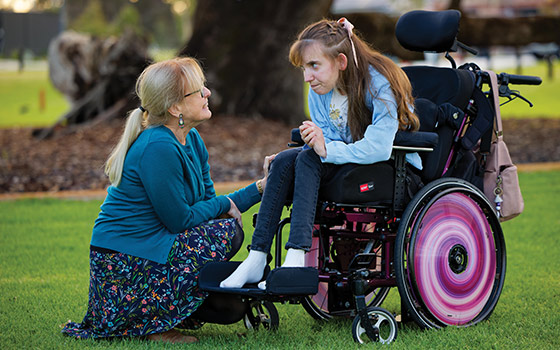Search
Research
Seizures in Rett syndrome: an overview from a one-year calendar studyInformation on daily seizure occurrence and health service utilization and monthly anti-epileptic drug use was provided on 162 Rett syndrome cases for a...
Research
Delineation of large deletions of the MECP2 gene in Rett syndrome patients, including a familial case with a male probandComprehensive genetic screening programs have led to the identification of pathogenic methyl-CpG-binding protein 2 (MECP2) mutations...
Research
Physical and mental health of mothers caring for a child with Rett syndromeThis study compared the behavior profile of cases in the Australian Rett Syndrome Database (ARSD) with those in a British study using the Rett Syndrome...
Research
Early progressive encephalopathy in boys and MECP2 mutationsMECP2 mutations mainly occur in females with Rett syndrome. Mutations have been described in 11 boys with progressive encephalopathy...
Research
Lost in translation: translational interference from a recurrent mutation in exon 1 of MECP2Rett syndrome (RTT) is an X linked neuro-developmental disorder affecting mostly girls. Mutations in the coding region of MECP2 are found in 80% of classic...
Research
NTNG1 mutations are a rare cause of Rett syndromeA translocation that disrupted the netrin G1 gene (NTNG1) was recently reported in a patient with the early seizure variant of Rett syndrome (RTT).
Research
The association between behaviour and genotype in Rett Syndrome using the Australian Rett Syndrome DatabaseThis study compared the behavior profile of cases in the Australian Rett Syndrome Database (ARSD) with those in a British study using the Rett Syndrome...

The Quality of Life Inventory - Disability

AuStralian Collaboration to Enhance Neuro-Development

Research
The Sibling ProjectThe Sibling Project focuses on the wellbeing, relationships and needs of children, adolescents and emerging adults who have a sibling with a developmental disability.
